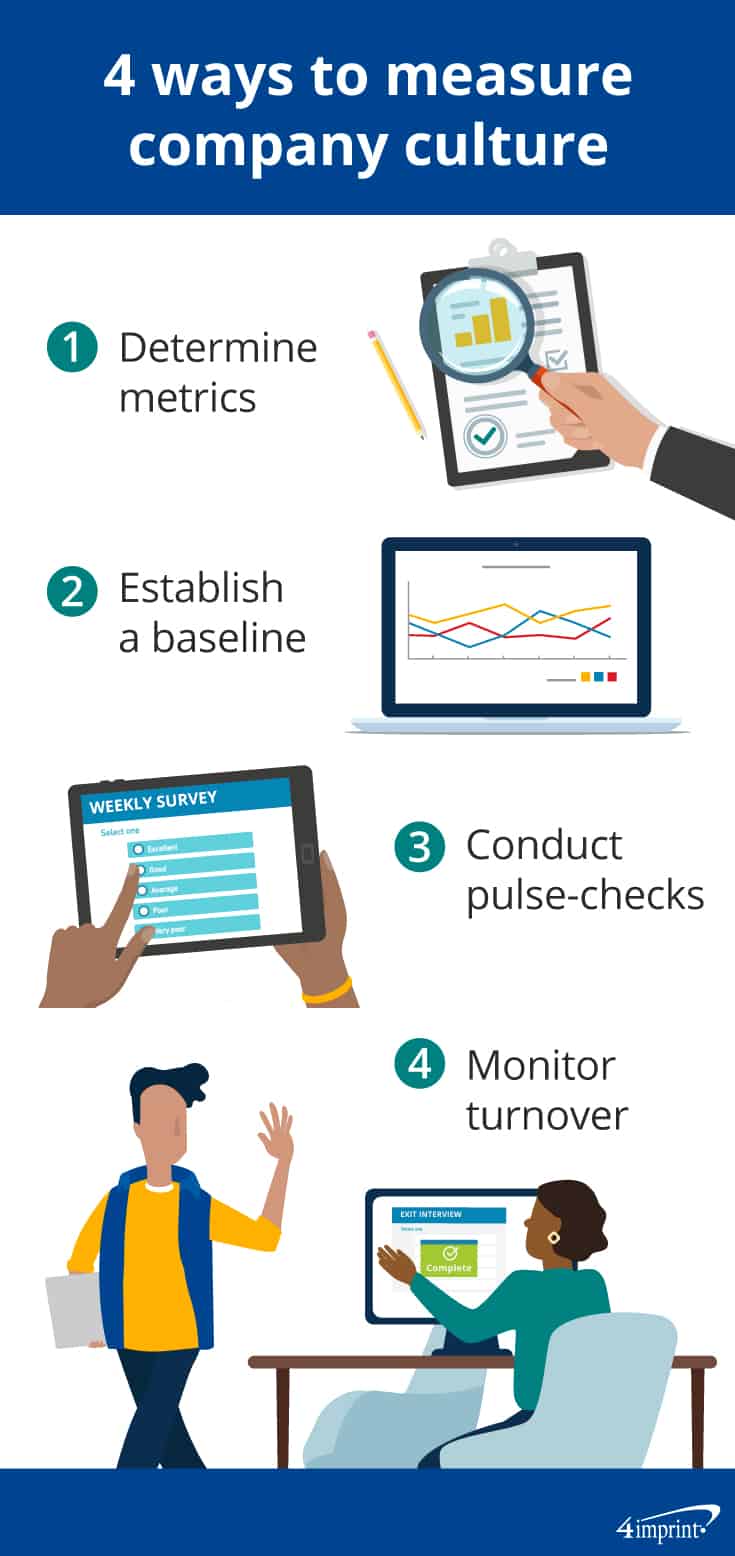Given that company culture defines how to act and communicate within a business, it’s no surprise that leaders place such high importance on it. About 86% of C-Suite executives consider company culture a priority.

However, many of them aren’t measuring it. Just like sales numbers, a business’s culture is a reliable success predictor, so monitoring and measuring it can bring results. In fact, organizations that use culture as a strategic tool increase revenue four times faster and double their customer satisfaction. If you’re interested in learning how to measure company culture, read on to get started.

Determine the right metrics
Metric importance varies from company to company. For example, employees being proactive may be crucial to one business’ culture, while employee transparency may be key to another. Choose three to five components of your culture, set goals and measure against that.
Tracking the right metrics makes it easier to define clear, actionable goals.
If you’re unsure which metrics to focus on, start with what has and hasn’t worked well in the past. For example, is employee collaboration or independent problem-solving more important to your success?
Establish a baseline
A baseline lets you easily measure results over time. A metric-friendly system, like a score from 1-10, gives you a good base to measure future results. Send a survey to employees with statements that reflect what you want your culture to be like. For example:
- My boss is open to my suggestions.
- I feel respected and valued as a team member.
- My supervisor is understanding about family issues.
You can set measurable goals based on the results. Use the same survey to track changes.
To help employees be completely honest, reassure them their answers will remain confidential.
As a thank you for employee participation, hand out staff appreciation gifts, like a coffee mug or cotton tote.
Do a pulse check
To help ensure a healthy culture is part of daily work life, do frequent pulse checks. Whether weekly, bi-weekly or monthly, ask staff a standard set of questions (or present statements they can rate 1-10). These consistent check-ins help you make incremental changes until the next survey.
Explain why you’re doing a pulse check, so your team understands their feedback will be taken seriously and used to create a better work environment. Regular pulse checks can alert you to potential issues, so you can take action and prevent larger problems. And if you discover your culture isn’t what you want it to be, addressing issues with compassion and authenticity can quickly help your culture get stronger.
Keep an eye on turnover
How often do employee leave? And when they do, is it usually on good terms? Do you know the real reason they’re leaving? Measuring company culture includes performing exit interviews or surveys for deeper insights. Just before they leave, ask employees to share their feelings about their day-to-day interactions with supervisors and colleagues. Acting on their consolidated feedback can result in better management and higher employee retention. For goodwill, consider giving a staff appreciation gift to parting team members, like a bamboo coaster set, a rain gauge or a lightweight bean bag game.
Create a healthy culture
Company culture is crucial. By focusing on the right metrics, checking in with employees frequently and conducting exit interviews, you can quickly measure company culture and make your business even stronger.
Top takeaways:
- Decide the most important cultural metrics to track
- Form a solid baseline to measure against
- Consistently perform culture check-ins
- Conduct exit interviews or surveys
